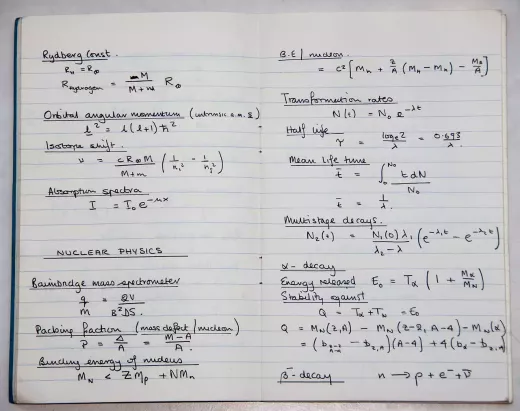Understanding energy balance and weight loss
When it comes to weight loss, the key is creating a calorie deficit burning more calories than you consume. This is where macronutrients come in. Carbohydrates, proteins, and fats are the primary sources of calories in our diets. Understanding the role of each macro and how they impact our bodies can help us create an effective weight loss plan.
It's important to note that weight loss isn't just about cutting calories. It's also about ensuring that you're getting the right balance of nutrients to support your body's functions. This is where macronutrients come in. By balancing your intake of carbs, protein, and fat, you can ensure that your body is getting the nutrients it needs to function optimally while still creating a calorie deficit.
When it comes to creating a calorie deficit, it's important to remember that it's not just about eating less. Exercise is also an important factor in weight loss. By increasing your physical activity, you can burn more calories and create a larger calorie deficit.
Importance of protein in weight loss
Protein is a critical macronutrient when it comes to weight loss. Not only does it help build and repair muscle tissue, but it also helps keep you feeling full and satisfied between meals. This can help you avoid overeating and make it easier to stick to a calorie-controlled diet.
In fact, studies have shown that a high-protein diet can be effective for weight loss. One study found that participants who followed a high-protein diet lost more weight and body fat than those who followed a low-fat diet. Another study found that increasing protein intake helped participants maintain weight loss and prevent weight gain over the long term.
When it comes to choosing protein sources, aim for lean options like chicken, fish, and legumes. These options are lower in calories and fat than options like red meat. Eggs are also a great source of protein, and they can be a versatile addition to any meal.
The role of carbohydrates in weight loss
Carbohydrates are often demonized in the world of weight loss, but they play an important role in our diets. Carbs are our body's primary source of energy, and they're critical for fueling physical activity. However, not all carbs are created equal.
Simple carbs like sugar and refined grains are quickly digested by the body, leading to a spike in blood sugar levels. This can lead to feelings of hunger and cravings for more carbs. Complex carbs like whole grains, on the other hand, are digested more slowly, providing a steady source of energy and helping to keep you feeling full and satisfied.
When it comes to weight loss, it's important to choose the right types of carbs. Aim for complex carbs like whole grains, fruits, and vegetables, and avoid processed foods that are high in simple carbs and added sugars.
The Relationship Between Carbohydrates and Weight Loss
Different types of fats and their impact on weight loss
Fat often gets a bad rap when it comes to weight loss, but it's an important macronutrient that plays a critical role in our bodies. Fats provide energy, insulation for our organs, and help regulate hormone levels.
However, not all fats are created equal. Saturated and trans fats can increase cholesterol levels and increase the risk of heart disease. Unsaturated fats, on the other hand, can have the opposite effect, helping to lower cholesterol levels and reduce the risk of heart disease.
When it comes to weight loss, choosing the right types of fats is important. Aim for unsaturated fats like those found in nuts, seeds, and avocados, and avoid saturated and trans fats found in processed foods and animal products like butter and red meat.
Calculating your macronutrient needs for weight loss
Now that you understand the role of each macronutrient in weight loss, you may be wondering how to determine the right balance of macros for your body. The answer depends on a variety of factors, including your age, gender, weight, and activity level.
There are a variety of online calculators that can help you determine your daily calorie needs and the right balance of macros for your body. However, it's important to remember that these calculators are just estimates. It may take some trial and error to find the right balance of macros that works for your body.
Best sources of macronutrients for weight loss
When it comes to weight loss, it's important to choose nutrient-dense, whole foods over processed options. This not only helps ensure that you're getting the right balance of macros, but it also provides your body with the vitamins and minerals it needs to function optimally.
Some of the best sources of carbs for weight loss include fruits, vegetables, whole grains, and legumes. Lean protein sources like chicken, fish, and tofu are great options for protein, while nuts, seeds, and avocados are excellent sources of healthy fats.
The importance of tracking your macronutrient intake
Tracking your macronutrient intake can be a helpful tool in ensuring that you're getting the right balance of nutrients for your body. This can be done using a variety of tools, including apps and online calculators.
However, it's important to remember that tracking macros isn't necessary for everyone. For some people, simply focusing on eating nutrient-dense, whole foods and creating a calorie deficit may be enough to achieve their weight loss goals.
Common mistakes to avoid when tracking macronutrients
If you do choose to track your macros, there are a few common mistakes to avoid. One of the biggest mistakes is not accounting for hidden sources of macros, like oils used in cooking or condiments like ketchup and mayo. It's important to track everything you eat to ensure that you're getting an accurate picture of your macro intake.
Another mistake is becoming too obsessed with tracking macros. While tracking can be a helpful tool, it's important to remember that it's just one piece of the puzzle when it comes to weight loss. It's also important to listen to your body and honor your hunger and fullness cues.
The key to successful weight loss with macronutrients
Understanding the role of macronutrients in weight loss can be a helpful tool in achieving your health goals. By balancing your intake of carbs, protein, and fat and creating a calorie deficit, you can effectively lose weight while still getting the nutrients your body needs to function optimally.
When it comes to choosing macronutrient sources, aim for nutrient-dense, whole foods and avoid processed options. And if you choose to track your macros, be sure to avoid common mistakes like not accounting for hidden sources of macros and becoming too obsessed with tracking.
Remember, weight loss is a journey, and there's no one-size-fits-all approach. Listen to your body, honor your hunger and fullness cues, and be patient with yourself as you work towards your health goals.










